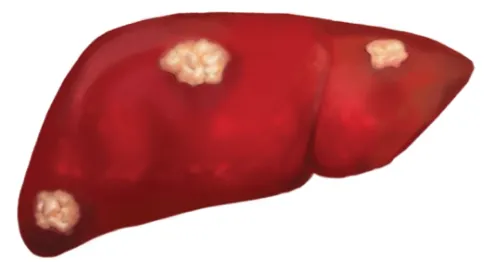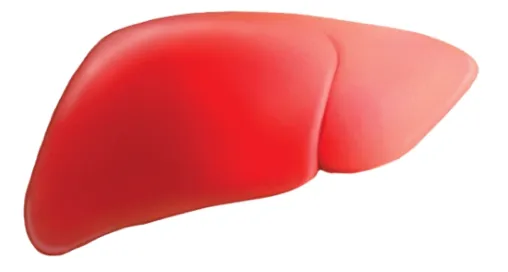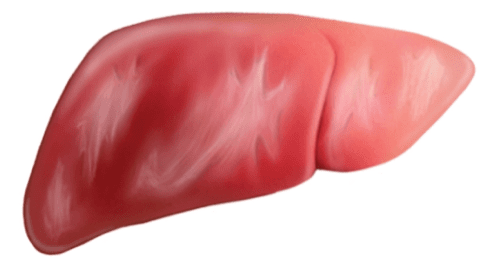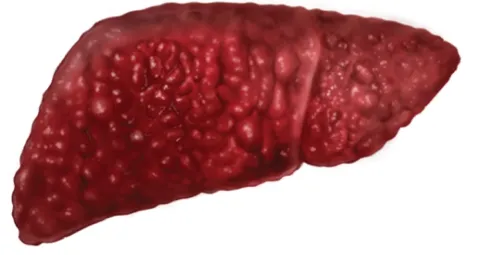For US audiences only
For US audiences only
Map of regions with the largest numbers of HBV-positive immigrants to the United States, 2020

3 out of 4 people with chronic hep B in the United States are immigrants from high-risk regions of the world
Hep B is sometimes called a "SILENT KILLER" because even if you don't feel sick, the virus may be active and causing liver damage. Talk to your doctor because chronic hep B can be managed.
Risks of living with untreated chronic hep B


Increased risk of




People with chronic hep B have a similar or higher risk of developing cancer than someone who smokes 1 pack of cigarettes per day.
Talk to your doctor to see if treatment is right for you
When you take medicine for your chronic hep B, sometimes you may have side effects. Sometimes, your medicine can even stop working. See your doctor regularly so they can monitor these things closely.

Having chronic hep B means that you will have it for a long time and maybe the rest of your life. Ignoring it may lead to long-term consequences, such as serious liver damage. But there are many ways to manage chronic hep B.
Some tests that your doctor may do are:

This test measures how much hep B virus is in your body (your viral load).
If your viral load is above 2,000 IU/mL (HBeAg negative) or above 20,000 IU/mL (HBeAg positive), your doctor may prescribe medicine that may help reduce your viral load.
Your viral load should be as close to undetectable as possible. Undetectable means that your viral load is so low that it cannot be measured by a lab test.

Being undetectable does not mean you are cured from chronic hep B. Always talk to your doctor about your test results and what they may mean.
Even if your viral load and ALT levels are low, they can change over time.
That's why it's so important to get tested regularly. Seeing your doctor for routine testing will help them monitor the hep B virus and start you on treatment if it's appropriate.

ALT is an enzyme found in liver cells. It can leak into the bloodstream if there is damage to the liver.
In general, normal ALT levels are 35 IU/mL for men and 25 IU/mL for women.
If ALT levels are high, it may indicate that you have active liver damage. Your doctor may consider treatment to help normalize your ALT levels.

Even if your viral load and ALT levels are low, they can change over time.
That's why it's so important to get tested regularly. Seeing your doctor for routine testing will help them monitor the hep B virus and start you on treatment if it's appropriate.

The AFP (alpha-fetoprotein) test may be used to screen for liver cancer. The test will measure the levels of this protein in the blood. If AFP levels are high, your doctor may do more blood tests or an imaging study, such as a liver ultrasound.
For a liver ultrasound, a special scanner is used to create an image of the liver that can be screened for liver cancer.
It's important to talk with your doctor to see if treatment is right for you
Here are 5 things you can do to help manage your chronic hep B:

Eat a healthy, balanced diet

Avoid drinking alcohol (alcohol can speed up progression of liver disease)

Tell your doctor about any medications, vitamins, or herbal remedies you're taking (some may be harmful to your liver)

Avoid smoking
Because the amount of the hep B virus varies over time and may never go away, it's important to see your doctor regularly. Your doctor will determine how often you should be tested to monitor your hep B.
Routine monitoring may include measuring your viral load and ALT levels, and possibly screening for disease progression, including liver cancer.
Skipping appointments and lab tests may affect the management of your condition.

Remember to remind your doctor, dentist, and other healthcare providers that you have chronic hep B.

Share anything that could be contaminated with blood, like toothbrushes, razors, or nail clippers

Share needles used for tattooing, acupuncture, or injections of any kind

Donate blood, sperm, or body organs

Clean up any blood using bleach

Use condoms during sexual contact

Encourage family to get tested and, if possible, to get vaccinated for hep B

Cover any cuts or scratches
When tests show you have high amounts of the hep B virus in your liver, your doctor may prescribe a medicine called an antiviral that may lower the amount of virus in your blood.

It may be dangerous to stop taking your medications without talking to your doctor.
The more information your doctor has, the better they can help you with managing your health.
Before your visits:
During your visits: